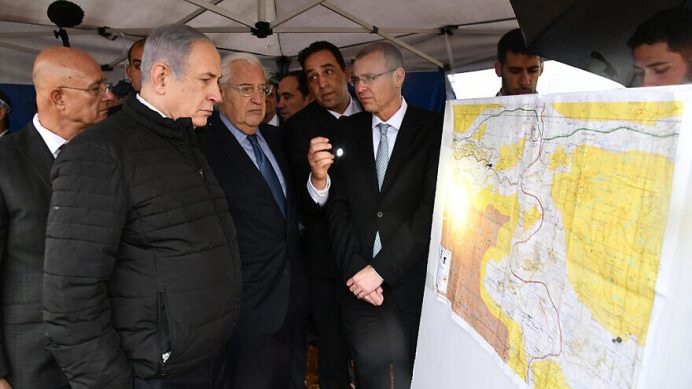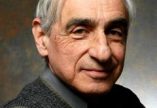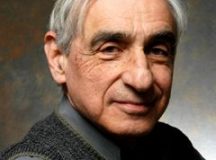In this urgent essay, written before the new Israeli coalition government was agreed, but with great relevance to its future programme, Michael Walzer argues that while Israel’s external enemies must continue to be defeated, the greater danger comes from those who claim to be Zionists but are actually working to defeat the Zionist project of a Jewish and democratic state.
Israel is a country with serious enemies — not rivals or competitors or even opponents, but enemies who seek the destruction of the state and the death or exile of its citizens. But it isn’t true, as some Israelis say, that ‘all the world is against us’. Israel also has close friends, somewhat distant friends, and strategic allies who aren’t quite friends. There are also a host of countries around the world who don’t care about Israel, who aren’t engaged for or against. The enemies are dangerous — I don’t mean to dispute that — and they are not at this moment an existential threat, but that could change (if Iran, for example, gets nuclear weapons). Still, the greater danger to Israel right now comes from its rulers, who claim to be Zionists but are actually working to defeat the Zionist project: a Jewish and democratic state. I will try to explain why this is a self-destructive politics.
It wouldn’t be right to say that the danger comes from Israel’s government, since recent governments have not been either competent or effective. Israel has a fine health service and a strong army, produced by governments long ago. But the men and women who sit in offices in Jerusalem as I write are hardly rulers; their writ doesn’t run over large parts of the country’s population, and they go along with more than they determine state policies. The ultra-Orthodox (Haredi) community is essentially autonomous; its members obey only the laws they want to obey. The settler movement is also an independent force, literally so on the West Bank where the settlers are a law unto themselves, but also in Israel proper where the supporters of the settlers see the government only as an instrument that is sometimes useful for their purposes.
The Arab citizens of Israel seemed in recent years to be on the road to economic if not social integration, though still with a long way to go. But if the Haredim and the settlers are over-privileged citizens, above the law, the Arabs are under-privileged citizens, below the law; their communities are under-resourced and under-policed, with high rates of crime and unemployment. Still, Israel is not an apartheid state; the claim is malicious. Arab citizens are prominent in the medical professions, increasingly active in the legal profession (since Israeli firms doing business in the Arab world need native speaking Arab lawyers), strongly represented among college and university students, politically engaged, sitting in the Knesset (and probably in the next government), with public intellectuals and journalists who write what they please. None of this fits the standard meaning of the word ‘apartheid’. But it is true to say that the Arabs are a national minority under threat from the rulers of the state — the threat symbolised by the Nation-State Law that declares them second-class citizens to whom the state doesn’t belong.
Israel today is effectively ruled by an informal right and far-right coalition committed to one Jewish state from the river to the sea (with scattered Palestinian enclaves and a for-appearances-only autonomy). The coalition can’t at this moment form a government, though it will certainly be part of any government formed in the foreseeable future. In effect, it rules without governing. It drives policy; it not only sustains the occupation but works to make it permanent. The coalition includes more or less decent right-wingers who would grant Arabs some civic rights within Greater Israel, but it also includes a fascist fringe (maybe more than a fringe), whose leaders would grant them no rights at all. I call them fascists, not Nazis; they are much like the Italian, Spanish, Hungarian, and Rumanian fascists of the 1930s and ’40s. In between these two groups are a variety of nationalists, secular and religious, many of them lying to themselves about the nastiness of their political objective. The settlers are the immediate authors of this politics; the Haredim, who have never been committed to a state of any sort, are its passive but crucial supporters.
The politics of this coalition has been shaped only in part by Prime Minister Benjamin Netanyahu, who is sometimes a little more cautious than some of its militants. He fronts for the coalition, which has, until these last days, kept him in office (and out of prison). In any case, the politics seems fixed. Its first feature is the expansion of settlements and of the number of Jews living beyond the Green Line. Its second feature is the steady pressure for annexation, for the extension of Israeli sovereignty over more and more of the West Bank — without any limit to settler lawlessness. Its third feature is the ‘judaisation’ of Jerusalem, the gradual eviction of Arab residents, largely through private real estate transactions, though always with legal help. It’s unclear how much help Israeli courts will provide, so another goal of the coalition is to curtail judicial independence. All this for Greater Israel.
The active agents of Greater Israel are, first, those members of the army and police (a small minority but enough for the task) who take every occasion to harass and humiliate Palestinians and to make life as difficult as possible in the occupied territories. The young settler thugs who burn olive trees, smash car windows, desecrate mosques and churches, and beat up Palestinians when they get the chance are the second group of agents. You can read about them in Ha’aretz — there are incidents every day. Violent Palestinians who attack soldiers at the checkpoints, or throw rocks at settler cars, or try to stab any Jew they run into are also active agents of a vicious and self-destructive politics. But in contrast to the Jewish thugs, their violence is also literally self-destructive: they are usually killed on the spot or arrested — whereas violent Jews are more often protected than detained by police and soldiers and if detained, usually released within a few hours. Their thuggery has to rise to the level of murder before anyone is actually indicted. The third set of agents consists of the ultra-nationalist and messianist militants who establish illegal ‘outposts’ and their accomplices among lawyers, judges, and MKs who work to legalise these settlements-to-be, though it is hard to know what legal and illegal mean in the occupied territories where there is nothing like the rule of law.
There are other less central or, better, less visible agents of Greater Israel: the Haredi zealots who attack the Supreme Court; their MKs who routinely support the far-right even though that isn’t their own politics; the journalists (writers in Ha’aretz excepted) who don’t tell the truth about what’s happening in the West Bank; the politicians who know the dangers that will come with Greater Israel but are afraid to speak out; and the generals who fight the necessary wars and (there are exceptions again) claim victories that aren’t real. I should add, sadly, those leftists who think they can win elections by talking only about social and economic issues and ignoring the occupation.
The wars are necessary in two senses: first, because Israel has, as I said at the beginning, real enemies. And, second, because Greater Israel can’t be won without war. The two reasons for war and the two kinds of war can’t easily be distinguished. Though I am in my heart a defender of Little Israel, I am not naïve about its prospects for a peaceful existence. Its citizens would still have to be ready to defend their country and their lives. But it might be that they would fight with a better chance of winning.
Israel’s wars are in today’s parlance ‘asymmetric’. They are fought between a high-tech army, the Israel Defense Forces, and a low-tech insurgent or non-state force like Hamas. There have been a lot of asymmetric wars in the past 60 years, and the hard truth about them is that the high-tech army doesn’t win — not in Algeria, not in Vietnam, not in Afghanistan, not against Sunni or Shia militias in Iraq, and, obviously, not in Lebanon or Gaza. I don’t mean that the army always loses, only that it doesn’t win. The reason is simple: the insurgents fight from civilian cover; they launch rockets (as Hamas did in the 2014 war) from school yards and hospital parking lots; they store their weapons in the basements of residential buildings. There is no way for the army to fight back, even with sophisticated technology and good intentions, without killing civilians. Years ago, an American colonel in Afghanistan described the dilemma: ‘The more civilians we kill, the more certain it is that we will lose the war.’
These wars are political as well as military conflicts, and as the civilian death toll grows, so the protests grow, the gruesome pictures on TV screens dominate the news, and the battle for international sympathy and support is lost. In Afghanistan, America was fighting for Afghan hearts and minds; Israel obviously isn’t fighting for Gazan hearts and minds. But the battle for support around the world is very important for Israel, a country stuck in a dangerous neighbourhood with, again, real enemies. ‘Mowing’ the Gazan grass and knowing that it will grow and need mowing again may sound like a sustainable routine, but the long-term consequences will be harsh — for the people of Gaza, certainly, but for Israel, too. There will be too many humanitarian crises, some real, some not, some Israel’s fault, some not, and blame will not be assigned, isn’t being assigned today, with care, nuance, or honesty. Add the brutalities of the occupation and the steady expansion of Jewish rule, and Israel will find itself with fewer and fewer friends.
Israel is losing the political struggle — as evidenced by the dramatic shift in American politics during and after the recent war with Hamas. But Greater Israel, for the moment, isn’t losing. Hamas is the secret ally of Israel’s current rulers because it is the enemy of the Palestine Authority (PA), of the two-state solution, and of any compromise with Jewish sovereignty — and therefore not a plausible partner for peace. So Netanyahu has worked (between the wars) to strengthen Hamas, with which he doesn’t have to negotiate, and weaken the PA, with which he doesn’t want to negotiate. And thus he enables Jewish ultra-nationalists to continue their work of expansion and dispossession.
There are many reasons to doubt that the PA, even if strengthened by Israel and promoted as a peace partner, would actually turn out to be a peace partner. It has done little to build state-like institutions (as the Jewish Agency did in Mandate Palestine), and it has rejected offers that would have enabled it to form an actual state alongside Israel. Still, it has to be viewed as a possible partner, down the road, if Israel is to avoid the dangers of Greater Israel.
Now imagine what Greater Israel would look like — this right-wing version of one state. It will have, immediately or very soon, a Palestinian majority, about one-fifth of whose members will be enfranchised (the citizens of Little Israel) and four-fifths not. It will be a mostly but not entirely apartheid state. The Palestinians will certainly give up any demand for a state of their own alongside Israel. There won’t be any ‘alongside’ and, in any case, many Palestinians, in Fatah as well as Hamas, were never ready to co-exist with a Jewish state. Their demand now will be for democracy: one person, one vote — a political regime that neither the PA or Hamas ever promoted in the past. The Jews who rule Greater Israel will have to oppose this demand, hence oppose democracy, which was a central feature of the original Zionist project. The opposition will necessarily be brutal; I don’t want to think about the forms of repression that will be necessary to sustain Greater Israel. The world will watch and, naturally, support democracy, which will come eventually, in the form of majority rule. There is no reason to think that this will be a liberal democracy. The Palestinian majority will have its way; Jews who can will leave.
The opposite of Greater Israel is Greater Palestine. In the single state game, there is no middle ground. The Jewish ultra-nationalists who support the one have counterparts on the Palestinian side who support the other. A lot of Western liberals and leftists are eager these days to dismiss the idea of two states side by side: old hat, they say, tried and failed, impossible now. One state is in fact the older idea, first advocated by Jewish leftists and pacifists in the 1920s and ‘30s, who looked for Arab support and found very little. But the idea has actually been tried in Lebanon — one state with shared power and constitutional guarantees for all its religious groups— and the result is … Lebanon. A single state means civil war and exile. Palestinians won’t want to be ruled by a Jewish minority; Jews won’t want to be ruled by a Palestinian majority.
Many Israelis, perhaps half the country though it’s a disorganised and politically divided half, oppose Greater Israel and hope to defeat its militants. They have alternative plans for a future that is, admittedly, hard to imagine but necessary to think about. Two states brought together in a confederation seems to me the most promising alternative, but in fact almost any alternative would be better than Israel or Palestine from the river to the sea. What is most important, right now, is the establishment of an effective, competent, and fully sovereign Israeli government, committed to the rule of law, to stopping the expansion of settlements, and to holding open the possibility of a Palestinian state. A government like that is possible, not soon, perhaps, but possible. Success would bring Israel closer to, I won’t say within sight of, the Zionist dream: a Jewish and democratic state, with borders at last, a stable majority, and both regional and international legitimacy. Some Zionists had something bigger in mind, but Little Israel would fulfill the dream.
The Palestinians have their own self-destructive politics and their own opponents of that politics (but not enough of them right now). The defenders of Little Israel should support the defenders of Little Palestine. We have to hope that one day, before the messiah comes, the two groups will get together. Jews around the world, and all of Israel’s friends and allies, should support whatever they come up with.





































Michael Walzer is usually a voice for reason. For this reason, it is quite frustrating to see him buy into many errors in fact in this article. I’ll just cover his description of the “Greater Israel” movement.
“Its first feature is the expansion of settlements and of the number of Jews living beyond the Green Line. Its second feature is the steady pressure for annexation, for the extension of Israeli sovereignty over more and more of the West Bank — without any limit to settler lawlessness. Its third feature is the ‘judaisation’ of Jerusalem, the gradual eviction of Arab residents, largely through private real estate transactions, though always with legal help.”
1) While the number of Jews living past the Green Line may have increased, the number of dunams beyond the Green Line occupied by Jews has not.
2) Other than expansion of the Jerusalem municipality, has there been a single dunam beyond Green Line where Israel has exercised sovereignty.
3) There is no change in title to any plots of land against the wishes of any Arabs living on that land. What there is is assistance in the exercise of ownership rights that Jews have had since the 19th century. The Supreme Court has protected the residents’ rights without confiscating the owners’ property rights by allowing the residents to be protected tenants with fixed rents. Then the tenants refused to pay their rent, and that is what is leading to their eviction.
Finally, Walzer writes: “Now imagine what Greater Israel would look like — this right-wing version of one state. It will have, immediately or very soon, a Palestinian majority, about one-fifth of whose members will be enfranchised (the citizens of Little Israel) and four-fifths not.”
Where does he get the numbers that 1/5 “Greater Israel” will be citizens of “Little Israel” with the remainder not? What territory is he including in “Greater Israel” that is not part of “Little Israel?” Is he assuming any inflows of outsiders into the newly realized “Greater Israel?”
When I was in law school Walzer was “the” intellectual and political theorist”.
It seems however that American secular jewish intellectuals always get it wrong on Israel – not very convincing piece!